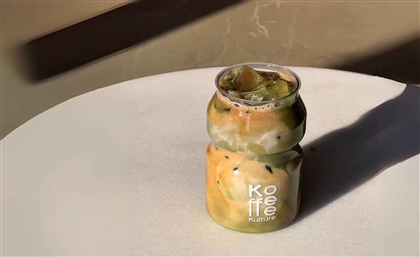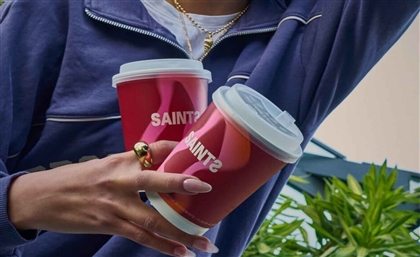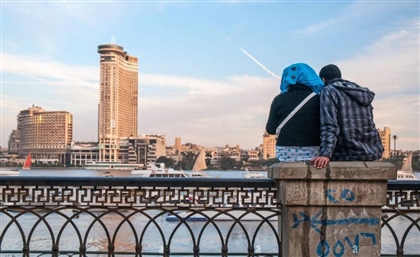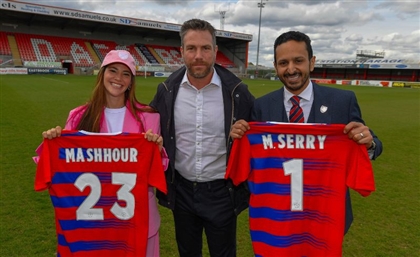Why is Gen Z Trading Assets for Matcha Lattes?
Call it financial doomscrolling with a splash of almond milk. We take a look inside the spending psychology of Egypt’s most financially anxious generation.

In Cairo, where the cacophony of car horns harmonizes with the muezzin's call to prayer, a new ritual has emerged among the city's youth. Clad in thrifted vintage attire, they congregate in minimalist cafés, sipping on matcha lattes and discussing the latest Netflix series.
To the untrained eye, this might appear as mere youthful indulgence. However, beneath this veneer lies a profound shift in the economic psyche of Egypt's Generation Z; it’s a cohort redefining value in a global era marked by uncertainty. Inflation rates have soared globally, reaching unprecedented heights, and the Egyptian pound has experienced significant devaluation. Such volatility has rendered traditional asset accumulation, a cornerstone of financial prudence, increasingly elusive for the youth. And Gen Z knows it well.
“In today’s market, where transparency is scarce, people—especially in emerging markets like Egypt—are left without clear paths for investing,” says Mohamed Ameen, an economist with a background in finance and AI. “Investing has become a complex maze, filled with bank portfolios charging fees up to 2% annually. It’s the uncertainty that drives young people to seek alternatives that feel more immediate, like the dollar or even digital assets."

“Inflation has completely rewired how young people relate to money,” says Ahmed Wadi, founder of MoneyFellows, a leading digital savings platform in Egypt. “Previous generations saved to get ahead. This generation saves to avoid falling behind. The goalposts have moved, and Gen Z is painfully aware of it.”
Enter the "scarcity loop," a concept articulated by journalist Michael Easter in his exploration of human behavior under conditions of deprivation. This psychological mechanism posits that in environments where resources are perceived as scarce or unpredictable, individuals gravitate towards immediate gratifications, often at the expense of long-term planning. For Egypt's Gen Z, the allure of a EGP 150 matcha latte transcends its taste—how can anyone find matcha good anyway? But it rather symbolizes a momentary escape from the relentless pressures of an unpredictable economy.
As Ameen explains, “The lack of transparency, especially in local markets, often leads to a greater reliance on assets that feel more tangible or accessible. For many, the dollar is the ultimate safe haven, even if that means turning away from local investment opportunities altogether.”
At the same time, social media has amplified these shifts in perception. Platforms like Instagram and TikTok have created ecosystems where identity is curated in real-time and consumption becomes performative. For Egyptian youth, the display of artisanal coffee cups or upcycled fashion signals something deeper than status—it suggests fluency in a global, digital vernacular.
Harvard Business Review's insight that “advertising makes us unhappy” rings especially true in this context. The constant stream of polished content fosters a sense of inadequacy, and for some, consumption becomes a coping mechanism. The matcha latte becomes less about caffeine and more about reclaiming calm.
Property ownership and other traditional assets have become increasingly out of reach. For many, the idea of building wealth through home ownership feels unattainable without inheritance. Instead, value is redefined through digital capital: curated profiles, exclusive event attendance, and niche fashion.
Bloomberg’s term “money dysmorphia” describes the widening gap between perceived and actual wealth. In Egypt, where familial expectations often pressurise youth to maintain appearances, that dissonance only deepens. Visibility—being seen as doing well—often takes precedence over financial reality.
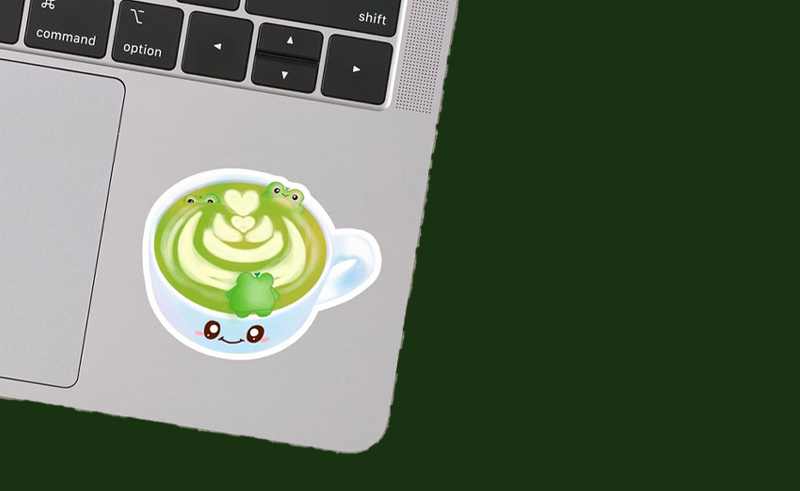
Research by economist Ragui Assaad points to the broader labour market struggles. Degrees no longer guarantee employment. Informal work is on the rise. For Gen Z, spending on small pleasures offers both comfort and psychological return.
And it’s not simply indulgent or escapist—it’s adaptive. The spectre of climate change, political upheaval, and economic volatility has instilled a sense that the future isn’t just uncertain—it’s discontinuous.
This shift in mindset reflects global patterns. Across the world, younger generations are rethinking what constitutes a life well-lived. In Egypt, that means allocating resources toward experiences and identities that feel meaningful now, rather than deferring gratification for a payoff that may never come.
For young Egyptian women, in particular, these choices carry another layer of meaning. Historically denied autonomy, especially in financial matters, their spending choices now reflect empowerment. Fitness classes, skincare, and independent learning aren't frivolous—they’re assertions of agency.
“Younger consumers aren’t short-sighted—they’re just adapting,” Wadi adds. “You stop planning for 30 years from now and start focusing on the next three.”
As the definition of financial literacy expands to reflect these new norms, traditional assumptions are being rewritten. Youth are investing in side hustles, digital currencies, and skill-building—forms of value that better align with their realities.
To understand why Egypt’s youth are spending so lavishly on what their parents might call “nothings,” one must first accept a difficult truth: the future, as once imagined, has quietly expired.

Gone is the era where delayed gratification - where you save early on to enjoy yourself later in life - was a moral imperative. For Gen Z, such a trajectory feels almost folkloric, like a tale from some financial Asgard. The promised “later” has arrived broken, if at all.
“Nothing feels guaranteed anymore,” says Omar, 26, a graphic designer who works freelance jobs from his bedroom in Nasr City, toggling between Figma files and food delivery apps. “You save up for months, and the pound crashes. You make plans, and the rules change. I’d rather enjoy the now. It’s the only real thing I’ve got.”
“A lot of Gen Z’s financial behaviour is rooted in anxiety, yes—but there’s also pragmatism,” Wadi adds. “They don’t have blind optimism, but they are entrepreneurial.”
This isn’t fatalism. It’s pragmatism dressed in distressed denim.It’s the soft pivot from empire-building to creating something that feels emotionally sustainable. Identity, in this context, becomes currency.
“At least I can own the way I show up in the world,” says Yasmine, a 22-year-old architecture student. “The way I look, the content I post, the spaces I choose to enter. They’re proof of taste. Of curation.”
And taste, increasingly, is the new status symbol.
“Real estate used to be the cornerstone of financial adulthood. Now, it’s often out of reach unless there’s inherited wealth,” Wadi adds. “That’s forcing a redefinition of what wealth even means.”

Consider the rise of “quiet luxury”—not about flaunting wealth, but suggesting you don’t need to. It’s subtle, but deliberate: a soft launch at a new concept café, a carefully filtered photo of a minimalist workspace. Even a matcha latte can signal belonging.
In this age of hypervisibility, performance has become part of financial behaviour. Even those not earning through content creation remain shaped by its demands.
Social media incentivises display. Influencers narrate aspirational lives with a seamless blend of aesthetic and instruction. Their followers aren’t merely consuming—they’re participating in a lifestyle logic where value is constructed in moments.
The paradox, of course, is that the more unattainable the economy becomes, the more its facsimile thrives online. Visibility becomes a stand-in for security.
Still, this shouldn’t be dismissed as superficial. In a system where few other avenues of progress feel available, aesthetic autonomy becomes a form of resistance.
Gen Z has also brought financial transparency into the open. What once remained whispered—credit card debt, bounced freelance cheques, budget-stretching brunches—is now captioned, tweeted, turned into TikToks. Shame has been swapped for solidarity.

And maybe that’s a kind of resilience, too. Naming the dysfunction. Laughing through it. Finding a shared vocabulary for a world that stopped making sense.
Ask Egypt’s Gen Z what their dreams are, and you’ll hear ambition—but it sounds different now. Not pensions or portfolios, but creative studios, niche boutiques, concept cafés. Their goals are local, personal, flexible.
The matcha latte, then, isn’t a financial misstep. It’s a loaded symbol. A performance. A protest. A moment.
And if that sounds too small a thing to carry so much weight, that’s only because we’re still learning the grammar of a generation who knows exactly what it’s doing—and isn’t waiting for permission.
- Previous Article Surreal Salt Lakes in the Middle East & Beyond
- Next Article Digital Payments Made Up 79% of Saudi Retail Transactions in 2024








